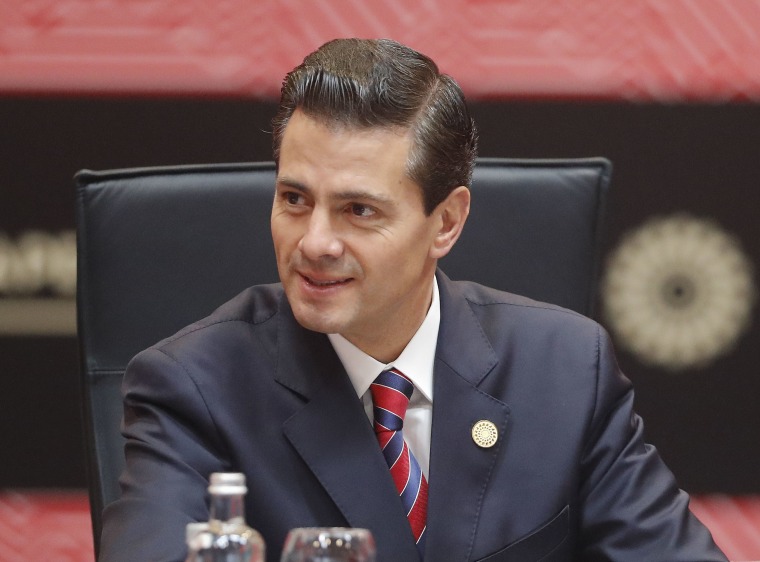LIMA, Peru - Several U.S. allies expressed worry over what changes could take place when it comes to trade under president-elect Donald Trump's administration at a summit of Asian-Pacific leaders in Peru on Saturday.
Mexican President Enrique Peña Nieto said NAFTA benefits workers and companies on both sides of the border. He expressed concern that the U.S. could be turning its back on a bilateral trade relationship responsible for moving $1 million worth of goods every minute.
"In the face of Trump's positioning, we're now in a stage of favoring dialogue as a way to build a new agenda in our bilateral relationship," Peña Nieto told business leaders. "Mexico, like the entire world, is about to initiate a new stage with the U.S. and in commercial terms we want to give the right value to this strategic relationship between Mexico and the U.S."
China's president made an impassioned call against the sort of protectionism favored by the president-elect at the Asia-Pacific Economic Cooperation forum. World leaders are on edge over Trump's campaign pledges to protect U.S. jobs by backing out of the not-yet-implemented Trans-Pacific Partnership and renegotiating the North American Free Trade Agreement.
New Zealand's Prime Minister John Key spoke more bluntly, saying the "tremendous despair" triggered by Trump's trade views can't be allowed to slow down economic integration by the rest of the world.
"Even if the United States doesn't want to engage in free trade, President Trump needs to know other countries do," said Key.
He said it's still possible to save the 12-nation TPP negotiated by the Obama administration by introducing cosmetic changes making it acceptable to Trump or carving out a less ambitious pact among TPP signatories that leaves out the U.S.
"I personally think that President Trump will be very much like chairman of the corporation Trump is," he said. "He's a flexible business guy. He's going to realize he has a role to play."
Chinese President Xi Jinping delivered perhaps the most-forceful defense of free trade, given the size of his economy. In his kickoff speech from Peru he said the best response to rising protectionism would be for APEC's 21 members to negotiate a free trade area encompassing the entire Pacific Rim.
"Closed and inclusive arrangements are not the right choice," Xi said, taking a veiled stab at the TPP, which excludes China and is widely seen as an attempt to reassert U.S. dominance in Asia. "Building a free trade area of the Asia-Pacific is a strategic initiative critical for long-term prosperity."
Xi's remarks came as Chinese state media blasted Trump for "trade-bashing" rhetoric that threatens global economic stability.
"The billionaire-turned-politician needs to prove that derailing the global economy has not been one of the reasons why he ran for U.S. president," official Xinhua news agency said in a commentary piece published Saturday.
President Barack Obama warned against a rush to judgment on Trump, saying at a town hall on the margins of the summit that it's too early to conclude that the new administration will wipe out trade deals and create international problems.
"Don't just assume the worst," he said. "Wait until the administration's in place" before drawing conclusions.
